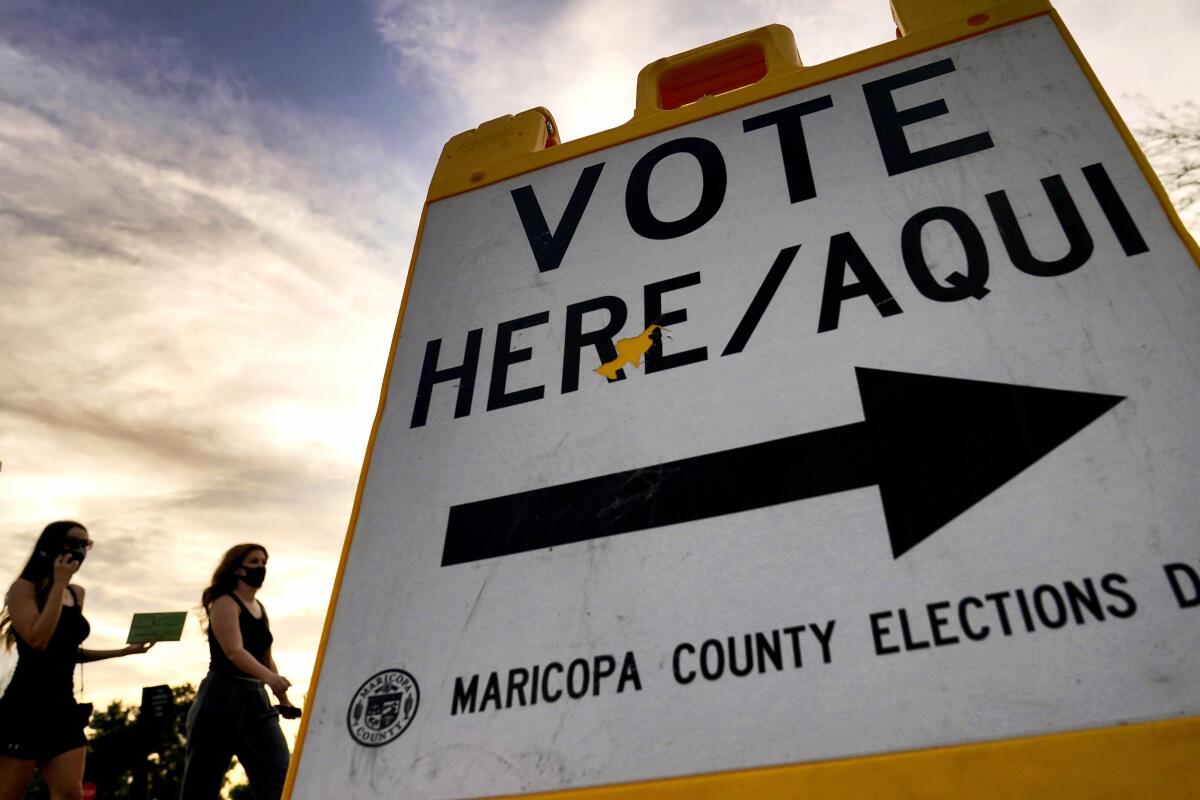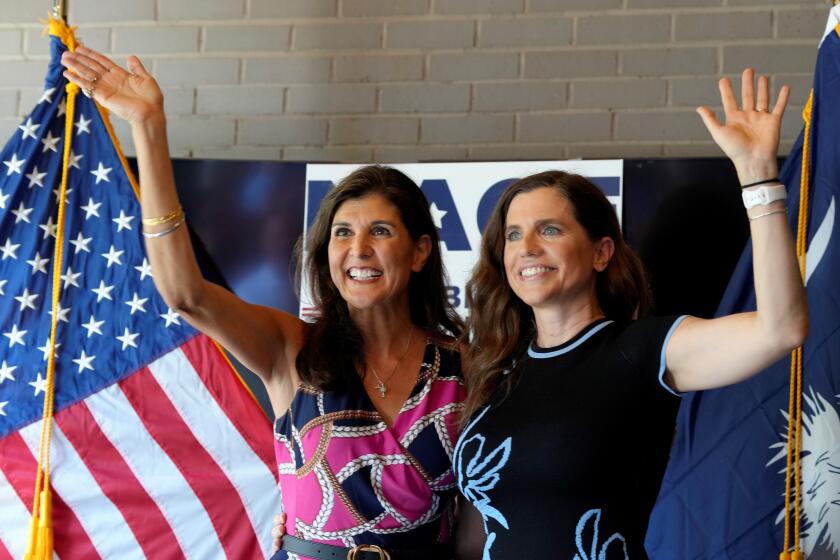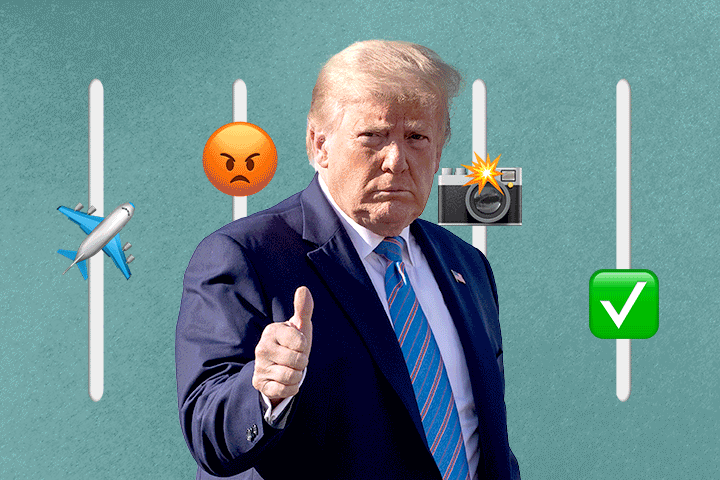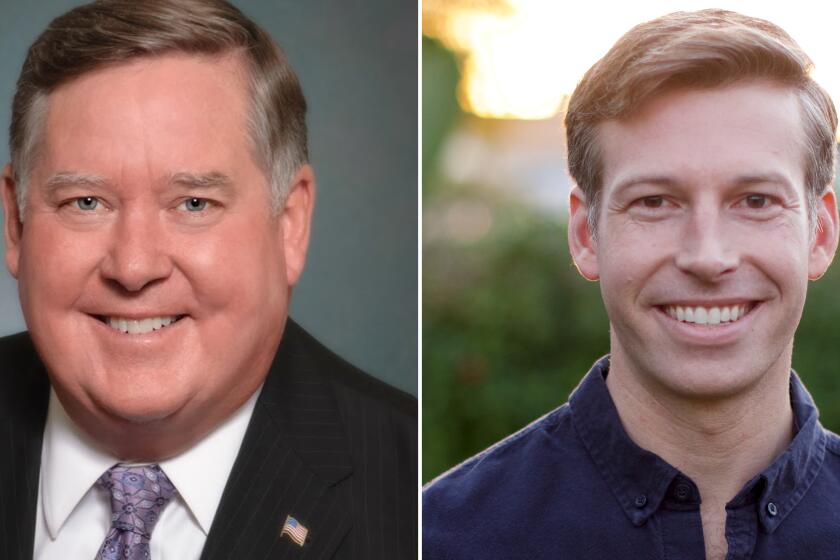Progressives betting millions that this unorthodox strategy can help keep Arizona blue

- Share via
Among the midterm battleground states, few command as much national attention as Arizona, which has two marquee races — governor and U.S. Senate — at the top of the ticket. One progressive coalition, however, is making an eight-figure wager that the key for Democrats’ success is farther down-ballot: the usually sleepy campaign for secretary of state.
Way to Win, a national donor network, and a cadre of local grass-roots organizations are homing in on the race for top elections official not just as essential for ensuring fair elections in a pivotal state, but also as a catalyst to build Democratic wins in the state despite stiff political headwinds.
The groups’ focus is yet another sign of how the once-obscure administrative post has become a prime political focus. On the right, supporters of former President Trump’s lies about a rigged election in 2020 are pushing laws to restrict voting access and rallying around like-minded secretary of state candidates. Those who reject Trump’s fraud claims warn that fair elections, the foundation of American governance, are under threat.
That fight is especially fierce in Arizona, where Trump lost to Joe Biden by roughly 10,000 votes, marking the first time the state backed a Democratic presidential candidate in more than two decades. It has been a hotbed of election denialism ever since, including a bungled election review in Maricopa County that failed to show any wrongdoing but succeeded in rupturing the Arizona GOP.
In the statehouse, narrowly led by Republicans, there has been a slew of election-related measures, earning Arizona the distinction of being “the epicenter of the fight for voting rights today,” according to New York University’s Brennan Center for Justice.
“Even though we’re still working on the Senate race, and we’re still focused on the state legislative races, the secretary of state takes precedence mainly because of the attacks on democracy here in the state,” said Tomas Robles, co-executive director of Living United for Change in Arizona, or LUCHA, an Arizona-based group that is partnering with Way to Win.
That priority is not just unusual, but counterintuitive. Polls show that voters are most focused on pocketbook issues, such as inflation. Democratic strategists are hoping renewed focus on issues such as abortion rights or guns could jolt the party out of political doldrums. Few see concerns about elections and democracy as a strong motivator.
In Nevada, candidate who spread Trump election lies wins primary, while in South Carolina, candidates who defied Trump face disparate fates.
“To the average voter, it’s definitely not the most compelling item to get them out and motivated. What’s motivating are things that impact their daily lives directly, such as education and healthcare, jobs and the economy, et cetera,” said Mike Noble, a nonpartisan pollster who runs the Phoenix-based firm OH Predictive Insights.
But Tory Gavito, president of Way to Win, said emphasis on the secretary of state campaign allows progressives to make the case that any voter concern — be it abortion access or funding schools — is fundamentally tied to faith in elections.
“The storyline has to say the Republicans are on a full frontal assault on our freedom — economic freedom, bodily autonomy freedom and our freedom to make choices in elections,” Gavito said. “You just can’t unpack them. You have to be able to talk about all of it.”
The test for Way to Win and its partners is to prove that approach will appeal to a multiracial electorate, a particularly urgent question for Democrats who have been openly fretting about losing ground with working-class Latino voters and other minorities.
Grass-roots organizers say they’re sure the pitch will work because they talk year-round to residents to find out what resonates with them. Roy Tatum, political director for Our Voice Our Vote, said that in the Black community where his group focuses its efforts, many people bring up voting issues as a top concern.
“That atmosphere was created when we saw the former president ... calling around to different states, particularly Georgia and Arizona, to say to the secretary of state and to the state legislators, ‘Hey, overturn your election results, so I can win,’” Tatum said.
That dynamic is compounded by the Republicans now running for the job, especially state Rep. Mark Finchem, whom polls show in the lead in the Aug. 2 primary, albeit with many voters still undecided. Finchem, who was active in the movement to overturn the 2020 election and traveled to Washington for Trump’s Jan. 6 rally, has built his campaign around evidence-free claims about election fraud; Trump has enthusiastically endorsed him.
Former President Trump uses primary endorsements to seek revenge, push election fraud lies and shape the Republican Party. How are his candidates faring?
On the Democratic side, Way to Win and its partners have endorsed state Rep. Reginald Bolding over Adrian Fontes, the former registrar of voters in Maricopa County. Bolding is the founder and director of Our Voice Our Vote; a state resident recently filed a complaint alleging Bolding may have illegally coordinated with the nonprofit for his campaign, according to the Arizona Republic.
The coalition is also seeking to qualify a ballot initiative that would significantly expand voting access, including allowing registration on election day and rolling back purges of infrequent voters from the state’s list of early voters who automatically receive mail ballots.
Activists say a strong showing on that ballot initiative would send a pointed message to Democratic U.S. Sen. Kyrsten Sinema, who infuriated progressive groups last year when she did not back changing rules on the Senate filibuster to pass voting protections.
“There’s a lot of energy at the grass-roots level to actually show that she’s wrong, that Arizona does in fact want this reform and will lead via the state first,” Gavito said.
LUCHA, which has already stated its intention to back a primary challenger to Sinema in 2024, has succeeded in rallying voters around local and ballot measures before. In 2016, it led a campaign to pass a $12 minimum wage; the initiative ended up winning with more yes votes than any candidate on the ballot. The group also organized around ousting controversial Maricopa County Sheriff Joe Arpaio that year, after several failed attempts.
Since then, LUCHA has focused on bringing out new voters to the polls, even as its advocates often hear from residents disillusioned by national politics.
Rep. Ken Calvert, who has opposed gay rights and once attacked an opponent for being gay, is facing a challenge from a gay Democrat in a newly competitive district.
“The message that we have at the door is that we are winning,” said Alejandra Gomez, the group’s co-executive director. “We can demonstrate that when we invest in local efforts they have an impact — like the minimum wage, like getting out Arpaio from office. People remember those things and they resonate because they have an immediate impact on their lives.”
As a conduit between national donors and local groups, Way to Win has directed $5 million so far this cycle to Arizona partners and is aiming to pour in $9 million more by November. It has not been easy, Gavito acknowledged, with progressives being burned out from activism in the Trump years and doom-and-gloom predictions for Democratic prospects this year, both because of historical trends against the president’s party in midterms and Biden’s poor approval ratings.
“We’ve been really kind of fighting an uphill battle against the narrative,” Gavito said, but added that she sensed a recent reversal after the Supreme Court overturned Roe vs. Wade and the congressional hearings on the Jan. 6 attack on the Capitol. “Because that’s starting to break through, we’re seeing the energy levels scoot back up.”
Success, Gavito said, will be judged in part by the numbers: if the organization’s efforts turn out an increased number of voters, especially among its targeted groups. But she also said a win for Democrats in the secretary of state race would have larger implications.
“If Arizonans can come through and choose the secretary of state that believes in free and fair elections,” she said, “it’s a real sign that the whole country is ready to close the book on this Republican effort to undermine our election systems.”
More to Read
Get our L.A. Times Politics newsletter
The latest news, analysis and insights from our politics team.
You may occasionally receive promotional content from the Los Angeles Times.














